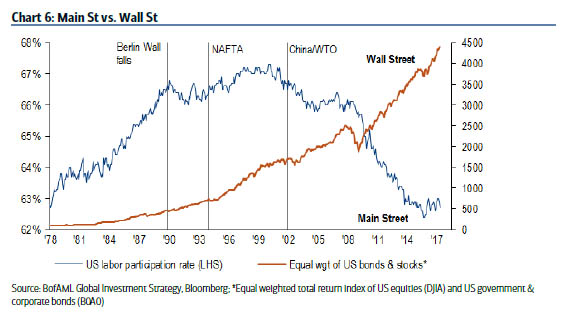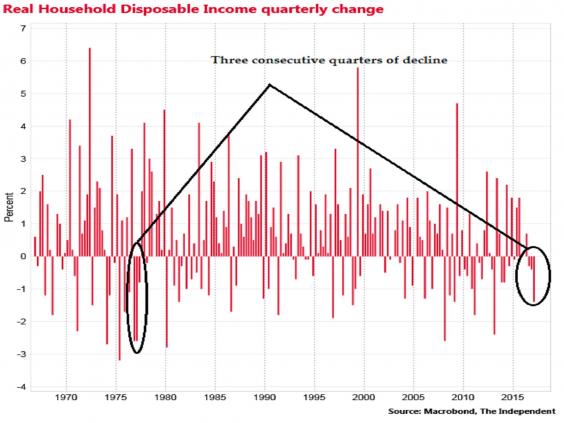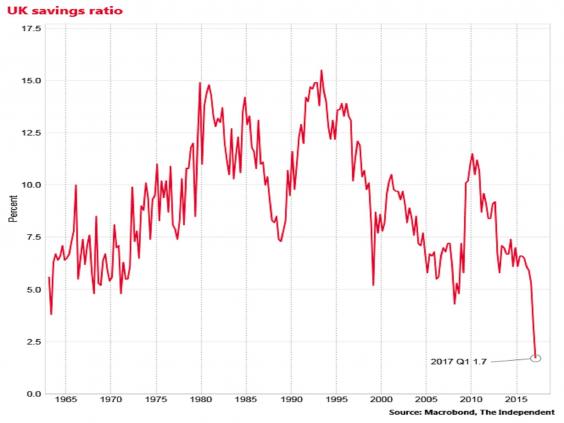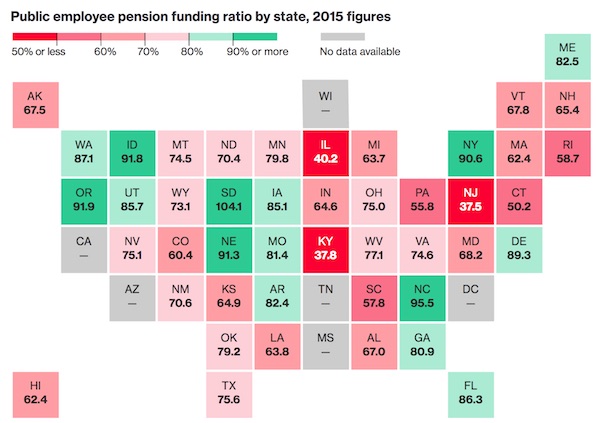
Fred Lyon Terrific Street, Barbary Coast, San Francisco 1947

I thought they were kidding, Daily Mail after all. But there are more reports on this. In a nutshell: the people who support this are much less capable of doing THEIR jobs than Trump is of doing his. They’re 100% delusional. And they lack a very essential respect for the American system and the Office of the President.
But it’ll all just keep coming. This is on the same day that both the NYT and AP feel forced finally to state that their Russiagate/hacking reporting has been based on nothing at all.
• Bill To Remove Trump From Office Picks Up Democratic Support (DM)
A Democratic congressman has proposed convening a special committee of psychiatrists and other doctors whose job would be to determine if President Donald Trump is fit to serve in the Oval Office. Maryland Rep. Jamie Raskin, who also teaches constitutional law at American University, has predictably failed to attract any Republicans to his banner. But the U.S. Constitution’s 25th Amendment does allow for a majority of the president’s cabinet, or ‘such other body as Congress may by law provide,’ to decide if an Oval Office occupant is unable to carry out his duties – and then to put it to a full congressional vote. Vice President Mike Pence would also have to agree, which could slow down the process – or speed it up if he wanted the levers of power for himself.
The 25th Amendment has been around since shortly after the John F. Kennedy assassination, but Congress has never formed its own committee in case it’s needed to judge a president’s mental health. Raskin’s bill would allow the four Republican and Democratic leaders of the House and Senate to each choose a psychiatrist and another doctor. Then each party would add a former statesman – like a retired president or vice president. The final group of 10 would meet and choose an 11th member, who would become the committee’s chairman. Once the group is officially seated, the House and Senate could direct it through a joint resolution to conduct an actual examination of the president ‘to determine whether the president is incapacitated, either mentally or physically,’ according to the Raskin bill.
And if the president refuses to participate, the bill dictates, that ‘shall be taken into consideration by the commission in reaching a conclusion.’ Under the 25th Amendment, such a committee – or the president’s cabinet – can notify Congress in writing that a sitting president is unfit. In either case the vice president must concur, and he would immediately become ‘acting president.’ Presidents have voluntarily transferred their powers to vice presidents in the past, including when they are put under anesthesia for medical procedures. In the case of Raskin’s plan, the Constitution holds that both houses of Congress would hold a vote within three weeks. If two-thirds majorities in the House and Senate agreed that the president couldn’t discharge his duties, he would be dismissed.
Raskin’s plan could have a fatal flaw, however: Legal scholars tend to agree that when the Constitution’s framers first provided for the replacement of a president with an ‘inability to discharge the Powers and Duties of the Office,’ they weren’t talking about mere eccentricities. And when the 25th Amendment was sent to the states for ratification in 1965, the Senate agreed that ‘inability’ meant that a president was ‘unable to make or communicate his decisions’ and suffered from a ‘mental debility’ rendering him ‘unable or unwilling to make any rational decision.’ So far two dozen members of the House, all Democrats, have signed on to cosponsor the bill. Texas Rep. Sheila Jackson Lee, a far-left liberal Democrat, claimed Friday in a Fox Business Channel interview that Congress can remove ‘incompetent’ presidents. ‘The 25th Amendment is utilized when a president is perceived to be incompetent or unable to do his or her job,’ she said.

Interesting idea, but how valid?:“Fed/ECB are now tightening to make Wall St poorer” because it is “no longer politically acceptable to stoke Wall St bubble.”
• Bank of America: The Fed Is Preparing To Make The Rich Poorer (ZH)
Remember when – for years and years after the grand, global QE experiment started – any suggestion that central bankers are the primary cause behind global wealth inequality, and thus directly responsible for such political outcomes as Brexit and Trump – was branded as a conspiracy theory by bloggers living in their parents’ basement? We do, because we were accused over and over of just that (our position on the Fed and other central banks should be familiar to all by now). Well, as of this morning, none other than the chief investment strategist at BofA, Michael Hartnett, is a basement dwelling, tinfoil hatter because in his latest Flow Show report, writes that “central banks have exacerbated inequality via Wall St inflation & Main St deflation.”

Of course we knew that, you knew that, and pretty much everyone else knew that, but those whose jobs depended on not admitting it, kept their mouths shut terrified of pointing out that the central banking emperor is not only naked, but an idiot. Well, the seal has been broken, and even the biggest cowards from within the financial establishment, most of whom can be found on financial twitter for some inexplicable reason, can speak up now. However, it’s what Hartnett said next that was more notable, namely that the “massive outperformance of deflation assets versus inflation assets shows central bank failure in War on Deflation…they have failed to boost wage expectations, inflation expectation, “animal spirits” on Main St.”

And, according to the Bank of American, now that central banks are in full reverse mode, there are “two ways to cure inequality…you can make the poor richer…or you can make the rich poorer…” So for anyone still confused, about what is taking place right now, the “Fed/ECB are now tightening to make Wall St poorer” because it is “no longer politically acceptable to stoke Wall St bubble.” Sooner or later the market will get it, and when it does, those who sell first will be happy. Everyone else will be stuck with a market that is locked limited down, with no position sales possible indefinitely, maybe in perpetuity.

“..the nation effectively performed a leveraged buyout (LBO) on itself during the last forty years. And that did temporarily add to the appearance of prosperity.”
• Debt Is the Third Benjamin Franklin Certainty (Stockman)
Once upon a time people used to have mortgage burning ceremonies when later in their working years the balance on the one-time loan they took out in their 30s to buy their castle was finally reduced to zero. And there was no such thing as student loans, and not only because students are inherently not credit worthy. College was paid for with family savings, summer jobs, work study and an austere life of four to a dorm room. No more. The essence of debt in the present era is that it is perpetually increased and rolled-over. It’s never reduced and paid-off. To be sure, much of mainstream opinion considers that reality unremarkable — even evidence of economic progress and enlightenment. Keynesians, Washington politicians and Wall Street gamblers would have it no other way because their entire modus operandi is based not just on ever more debt, but more importantly, on ever higher leverage.
The chart below not only proves the latter point, but documents that over the last four decades rising leverage has been insinuated into every nook and cranny of the U.S. economy. Nominal GDP (dark blue) grew by 6X from $3 trillion to $18 trillion, whereas total credit outstanding (light blue) soared by 13X from $5 trillion to $64 trillion. Consequently, the national leverage ratio rose from 1.5X in 1980 to 3.5X today. My point today is not to moralize, but to discuss the practical implications of the nation’s debt-topia for Ben Franklin’s other two certainties — death and (especially) taxes. There’s no doubt that the modus operandi of the American economy has been transformed by the trends displayed in the below chart. It so happened that the 1.5X ratio of total debt-to-income (GDP) at the beginning of the chart was not an aberration.
It had actually been a constant for 100 years — except for a couple of unusual years during the Great Depression. It was also linked with the greatest period of capitalist prosperity, economic growth and rising living standards in recorded history. By contrast, today’s 3.5X debt-to-income ratio has two clear implications. First, the nation effectively performed a leveraged buyout (LBO) on itself during the last forty years. And that did temporarily add to the appearance of prosperity. But it also means that the U.S. economy is now lugging two turns of extra debt compared to the historic norm. Mainstream opinion, of course, says “so what?” The U.S. economy is lugging $35 trillion of extra debt, that’s what. That’s right. In the absence of the 40-year leverage aberration since the late 1970s, the chart below would show about $29 trillion of credit market debt (public and private) outstanding, not $64 trillion.


Just don’t blame this on Brexit. It’s a much longer trajectory. Britain has been living above its weight for a long time, and austerity has made that much worse.
• UK Household Incomes Fall Most In 40 Years, Savings Rates Crash (Ind.)
The aggregate real disposable income of UK households has fallen for three quarters in a row for the first time since the 1970s, according to the Office for National Statistics. The ONS said that the inflation-adjusted compensation of the household sector fell 1.4% in the first three months of 2017, reflecting spiking inflation and weak pay growth. It was the biggest decline since the first quarter of 2013 and followed a 0.4% fall in Q4 2016 and a 0.3% slip in Q3 2016. Three consecutive quarters of contraction is the worst run for the series since 1976-77. The ONS also said that the aggregate household savings rate collapsed to just 1.7%, down from 3.3% in the final quarter of 2016, and the lowest on record, although it said one-off tax payment factors might have distorted the latest reading.

Nevertheless, weak pay growth means that households have had to resort to running down their savings and borrowing to support consumption, which has almost single-handedly powered the overall economy since last June’s Brexit vote. “This is not sustainable and fuels the belief that weakened consumer spending is likely to hold back the economy over the coming months,” said Howard Archer of the EY Item Club. “With consumer confidence declining and banks reporting that they intend to restrict the supply of secured credit, the saving rate is more likely to rise than fall ahead,” said Samuel Tombs of Pantheon.


Those foreigners would have to sell somthing first, we presume. There goes the S&P?!
• China’s Opening Of Bond Market May Spark ‘Massive Demand’ From Foreigners (CNBC)
China’s move to open up its fixed income market to foreign investors will eventually unleash “massive” demand for the mainland’s bonds, the chief executive of the company that operates Hong Kong’s stock exchange, told CNBC on Friday. In May, regulators in Hong Kong and on the mainland approved a “bond connect” program to allow investors operating in Hong Kong to trade Chinese bonds, called a “northbound” flow, with a “southbound” flow of Chinese investment into Hong Kong to be considered later. Authorities also won’t cap the amount that foreigners can invest in China. “I think this is a huge breakthrough,” HKEx CEO Charles Li told CNBC’s “Squawk Box” on the anniversary of Hong Kong’s handover to China.
Li said that while large investors are already able to access the mainland fixed income market though existing programs, the bond connect would be fundamentally different. “People are now finally able to do it and able to do it in a way that is familiar, that is similar to the way we trade U.S. dollar Treasurys or other international treasury fixed income instruments,” he said. “That is something so new. That the demand, underlying demand, the potent demand are massive.” He noted that with China’s yuan being included in the IMF’s Special Drawing Rights (SDR) basket in November 2015, some investors must include at least some renminbi assets on their balance sheets. Inclusion in the SDR means the renminbi is now officially recognized as a reserve currency. “That will require massive reallocation of capital but over quite a long period of time,” Li said, saying foreign investment into Chinese bonds was “at the beginning of the beginning.”

Not all of this will come out as bad as it may look tomorrow morning, but down the line it’s all a toxic swamp. In the short term, deep cuts to social programs.
• Judge Orders Illinois To Pay Billions More Toward Medicaid (CT)
A federal judge on Friday ordered Illinois to start paying $293 million in state money toward Medicaid bills every month and an additional $1 billion over the course of the next year, worsening a cash-flow problem caused by two years of budget-free spending by state government. U.S. District Judge Joan Lefkow’s ruling came after lawyers representing Medicaid patients and attorneys for the state were unable to agree on a plan to deal with bills and pay down a $3 billion backlog owed to health care providers. The ruling requires the state to start promptly paying all new Medicaid bills, which is estimated at about $586 million per month, and to pay down $2 billion of its bill backlog in payments spread out over the course of the coming fiscal year. The federal government pays half of those costs, so the bottom line for the state will be $293 million per month and $1 billion in backlogged bill payments over the next year.
Comptroller Susana Mendoza’s office earlier in the week had offered to pay an additional $150 million per month, but the plaintiffs rejected it, saying it wasn’t enough. The $150 million would have only cost the state $75 million because of the federal match, and Mendoza’s office said that was all the state could spare while meeting other demands. Now, Mendoza said Friday’s ruling would cause her to likely have to cut payments to the state’s pension funds, state payroll or payments to local governments. Payments to bond holders won’t be interrupted, she said. “As if the governor and legislators needed any more reason to compromise and settle on a comprehensive budget plan immediately, Friday’s ruling by the U.S. District Court takes the state’s finances from horrific to catastrophic,” Mendoza said in a statement. “A comprehensive budget plan must be passed immediately.”

Maine beat Illinois to it! Partial shutdown started today.
• Maine Governor Won’t Sign Latest Budget Proposal, Will Allow A Shutdown (BDN)
Gov. Paul LePage said Friday that he won’t sign a state budget package endorsed Thursday night by a special panel, ensuring a partial shutdown of state government at midnight. The Republican governor’s opposition to the budget deal would force Maine’s first state government shutdown since 1991, which could stretch 10 days if LePage holds a budget bill for the full time the Constitution allows before he must act. A budget would go to him tonight if the Legislature can muster two-thirds votes in both chambers, but even that was a big “if” on Friday. LePage hosted House Republicans for a Friday morning meeting where he reportedly implored them to oppose the budget deal negotiated by Senate President Mike Thibodeau, R-Winterport, and House Speaker Sara Gideon, D-Freeport.
LePage told reporters his major objections were the overall cost of the budget package – around $7.1 billion – and that it proposes raising the state’s lodging tax from 9% to 10.5% without income tax cuts. However, the budget package currently under consideration contains an income tax cut of 3% because it eliminates the surtax on income above $200,000 per year for education which was approved by voters last year. LePage said “on June 30” – the deadline for Maine’s next fiscal year – “they’re trying to put a gun to the governor’s head,” but it won’t work. “This budget they have has no prayer, and if they’re hell-bent on bringing this budget down, we will shut down at midnight tonight and we will talk to them in 10 days,” LePage said.

Whack-a-state.
• Connecticut Social Service Agencies Brace for Deep Cuts With No Budget (AP)
Nonprofit social service agencies prepared Friday to cut programs, close facilities and lay off staff after Gov. Dannel P. Malloy signed an order that slashes funding to maintain essential state services after lawmakers couldn’t come to terms on a budget before the end of the fiscal year. Barry Simon, president and CEO of Oak Hill, said his Hartford-based agency which serves people with developmental disabilities has decided to close four group homes and consolidate two others. Oak Hill was already losing money on those programs and anticipated the problem would be acerbated by the additional state reimbursement cuts in Malloy’s executive order. “Because of this situation, we’re pulling the trigger because it’s only going to get worse,” he said. Simon said 26 individuals live at the six affected group homes, some as long as 20 years. Most are being moved into other facilities.
Meanwhile, Oak Hill is scaling back day programs and employment services for people currently receiving services. And Simon said his agency cut off new admissions two months ago, in anticipation of the state budget impasse. Malloy called it “regrettable” he had to sign the executive order. When it became clear an agreement wasn’t possible on a new, two-year state budget before the fiscal year ended, the Democrat urged the General Assembly to pass a three-month “mini budget” he created. Malloy said it would be less draconian than the executive order and give lawmakers more time to reach a budget deal. While Democratic and Republican state Senate leaders supported Malloy’s mini budget, House leaders did not. Democratic House officials instead offered an eleventh-hour, two-year budget they said can be ready for a vote July 18. Malloy, however, was unenthusiastic about the proposal.

A healthy pension fund today should really be over 100% funded- because of future demographic expectations. Only South Dakota’s complies.
• America’s Pension Bomb: Illinois Is Just the Start (BBG)
We’ve been hearing it for years: America’s public pensions are a ticking time bomb. Well, at long last, the state of Illinois is about to expose just how big this blowup could be. As of the 2015 fiscal year, Illinois had promised its employees $199 billion in retirement benefits. Right now, it’s $119.1 billion short. That gap lies at the center of a years-in-the-making fiscal mess that’s threatening to drop the state’s credit rating to junk-bond status. But Illinois is hardly alone. Connecticut and New Jersey—states that, to most of the world, seem like oases of prosperity—are under growing financial strain, too. We’ve ranked the states by the size of their funding gap. The lower the funding ratio, the more money the state has to come up with to meet its pension obligations.


“The American people, by and large, have no more idea how false and fragile the financial arrangements of the nation are than the average eight-year-old has about why the re-po squad is towing away Daddy’s Ford-F150.”
• An Awful Lot Of Americans Are A Walking Illinois Now (Jim Kunstler)
The preview of coming attractions is currently playing out in Illinois — soon to be joined by Connecticut, California, Kentucky, and many other bankrupt states. Illinois is dead broke. It can’t pay the contractors who fix things like roads and storm drains, and supply food to its prisons. It’s over $200-billion deep in pension obligations that will never be honored. Its Medicaid system is a shambles. It doesn’t even have the cash-on-hand to pay lottery winners (what happened to all the cash paid into the lottery by the suckers who didn’t win, which is supposed to pay off the winners?). The state legislature hasn’t passed a budget in three years. The governor and the mayor of Chicago and everybody else nominally in charge have no idea what they’re going to do about it. Think the federal government is going to just step in and save the day there?
They’d have to bail out every other foundering state and that’s just not going to happen, especially with that same federal government about to run out of cash money itself, with no resolution of the debt ceiling controversy that might allow it to even pretend to borrow more money by issuing treasury bonds that are instantly bought by the Federal Reserve — which, of course, is not an official government agency but a private banking consortium contracted to manage the nation’s money. Do you begin to see the outlines of the clusterfuck rising like a bad moon over the harvest season of 2017? The American people, by and large, have no more idea how false and fragile the financial arrangements of the nation are than the average eight-year-old has about why the re-po squad is towing away Daddy’s Ford-F150.
We’re just doing what we always do: gittin’ our summer on. Breaking out the potato salad and the Bud Lites – at least those who have enough mojo left in their MasterCards to charge the party supplies. An awful lot of Americans must be maxed out, though, people who actually used to work at things and get paid for it. Each one of them is a walking Illinois now, facing each dawning day with a bigger load of problems, more things they can’t pay for, and moving closer to the dreadful day when everything is gone, every chattel, every knickknack, the very roof over their head, and most particularly the belief that they live in a fair and decent society.

Absurd theater 2017. Because: “The intelligence that prompted the administration’s warning to Syria this week was “far from conclusive,” said a U.S. official familiar with it. “It did not come close to saying that a chemical weapons attack was coming,” the official said.”
But Nikki Haley says: “I would like to think that the president saved many innocent men, women and children.”
• US Says Its Warning Appears To Have Averted Syrian Chemical Attack (R.)
U.S. Defense Secretary Jim Mattis said on Wednesday that the Syrian government of President Bashar al-Assad appeared so far to have heeded a warning this week from Washington not to carry out a chemical weapons attack. Russia, the Syrian government’s main backer in the country’s civil war, warned that it would respond proportionately if the United States took pre-emptive measures against Syrian forces to stop what the White House says could be a planned chemical attack. The White House said on Monday it appeared the Syrian military was preparing to conduct a chemical weapons attack and said that Assad and his forces would “pay a heavy price” if it did so. The warning was based on intelligence that indicated preparations for such a strike were under way at Syria’s Shayrat airfield, U.S. officials said.
“It appears that they took the warning seriously,” Mattis said. “They didn’t do it,” he told reporters flying with him to Brussels for a meeting of NATO defense ministers. He offered no evidence other than the fact that an attack had not taken place. Asked whether he believed Assad’s forces had called off any such strike completely, Mattis said: “I think you better ask Assad about that.” Washington accused Syrian forces of using the Shayrat airfield for a chemical weapons attack in April. Syria denies this. The intelligence that prompted the administration’s warning to Syria this week was “far from conclusive,” said a U.S. official familiar with it. “It did not come close to saying that a chemical weapons attack was coming,” the official said.
[..] Russian Foreign Minister Sergei Lavrov said on Wednesday that Moscow will respond if the United States takes measures against Syrian government forces. “We will react with dignity, in proportion to the real situation that may take place,” he said at a news conference in the city of Krasnodar. Lavrov said he hoped the United States was not preparing to use its intelligence assessments about the Syrian government’s intentions as a pretext to mount a “provocation” in Syria. [..] In Washington, the U.S. ambassador to the United Nations, Nikki Haley, credited Trump with saving Syrian lives. “Due to the president’s actions, we did not see an incident,” Haley told U.S. lawmakers. “I would like to think that the president saved many innocent men, women and children.”

Suggestion: look at this through Russian eyes. They don’t think Trump is crazy, they think all of America is.
• Make No Mistake, We Are Already at War in Syria (Giraldi)
Donald Trump has been in office for five months and it would appear that at least some of the outlines of his foreign policy are beginning to take shape, though that may be exaggeration as no one seems to be in charge. The “America First” slogan seemingly does not apply to what is developing, as actual U.S. interests do not appear to be driving what takes place, and there does not seem to be any overriding principle that shapes the responses to the many challenges confronting Washington worldwide. The two most important observations that one might make are both quite negative. First, lamentably, the promised détente with Russia has actually gone into reverse, with the relationship between the two countries at the lowest point since the time of the late, lamented Hillary Rodham Clinton as Secretary of State.
Second, we are already at war with Syria even though the media and Congress seem blissfully unaware of that fact. We are also making aggressive moves intended to create a casus belli for going to war with Iran, and are doubling down in Afghanistan with more troops on the way, so Donald Trump’s pledge to avoid pointless wars and nation-building were apparently little more than glib talking points intended to make Barack Obama look bad. The situation with Russia can be repaired as Vladimir Putin is a realist head of state of a country that is vulnerable and willing to work with Washington, but it will require an end to the constant vituperation being directed against Moscow by the media and the Democratic Party. That process could easily spin out for another year with all parties now agreeing that Russia intervened in our election even though no one has yet presented any evidence that Russia did anything at all.
Syria is more complicated. Senators Tim Kaine and Rand Paul have raised the alarm over American involvement in that country, declaring the U.S. military intervention to be illegal. Indeed it is, as it is a violation of the United Nations Charter and the American Constitution. No one has argued that Syria in any way threatens the United States, and the current policy is also an affront to common sense: like it or not Syria is a sovereign country in which we Americans have set up military bases and are supporting “rebels” (including jihadis and terrorists) who are seeking to overthrow the legitimate government. We have also established a so-called “de-confliction” zone in the southeast of the country to protect our proxies without the consent of the government in Damascus. All of that adds up to what is unambiguously unprovoked aggression, an act of war.

Expect Russia to react to this too, and soon.
• Qatar Crisis: Armed Conflict And Protracted Dispute Grow More Likely (CNBC)
A diplomatic crisis on the Arabian Peninsula is turning into a protracted standoff, and some analysts now say the risk of armed conflict is emerging. The dispute between Qatar, a major natural gas exporter, and its neighbors is now entering its fifth week. Saudi Arabia, the United Arab Emirates, Egypt and Bahrain cut diplomatic ties with Qatar and implemented a partial blockade on June 5 in a bid to bring the tiny Persian Gulf monarchy in line with Saudi-dominated foreign policy. Some analysts initially thought the parties would seek a resolution by the end of the Muslim holy month of Ramadan, but last week, the anti-Qatar alliance issued a series of harsh demands. “It’s escalated to a stage where it’s very difficult for both sides to back down,” Firas Modad, analyst at IHS Markit, told CNBC this week.
The demands include non-starters such as shutting down Al Jazeera news and closing a Turkish military base. The coalition also calls on Qatar to end its alleged ties to terrorist groups and political opposition figures in Gulf nations and Egypt. It demanded Qatar pay reparations and submit to compliance reviews going forward. Qatar has rejected the demands. That is likely to trigger a series of additional economic and political sanctions against the government in Doha, causing the impasse to stretch out for months, risk consultancy Eurasia Group concluded in a briefing this week. “The crisis will continue to escalate before the Qatari leadership ultimately adjusts its policy positions, or in a slightly less likely scenario, opts to cement an alliance with Turkey and closer ties with Iran,” Eurasia Group said.


Or the Most Patriotic of Americans?
• Oliver Stone: Edward Snowden Is The “Most American Of Patriots” (ZH)
Director Oliver Stone, who’s recently released series “The Putin Interviews” stirred up controversy among liberals who accused him of being a Russian propagandist, appeared on the Liberty Report with former Texas Congressman Ron Paul to discuss the documentary, his views about former NSA contractor Edward Snowden, and why the US’s aggressive approach to containing the purported threat posed by Russia has led to a breakdown in relations between the two powers. Stone said he’s been “interested” in Russia since being raised as a conservative in New York City, claiming that his father instilled a “fear” of Communism and Russians in him at a young age. In the early 1980s, Stone visited the country for the first time as a screenwriter with the idea of interviewing several dissidents. He has returned several times since.
In particular, Stone has become interested in the case of Snowden, whom he praised as “the most American of patriots.” “I was interested in Russia – I went back into the 2000s. The Snowden story occupied me. And of course, it’s so ironic that he the most American of patriots is living in Moscow because he has to. It’s the only country in the world that would give him asylum – in other words it’s the only country in the word that can deny the US what it wants which is Snowden.” “[Putin] explained to me that Russians wanted an extradition treaty with the US for years, but nothing doing, because there are a lot of Russian criminals in America who stole money from Russia. He did nothing wrong in Russian terms so they gave him asylum – now its 3 years 5 years whatever its going to be. I wish Ed well I really do.”
Stone also shared a story about watching the movie “Dr. Strangelove” with Putin, who he said was greatly moved. “I showed him the movie Dr. Strangelove…and he watched it very serious about it. He said this movie was very accurate of that time and it’s still accurate today.” Circling back to the issue of nuclear deterrents, Stone said he’s worried that rising tensions around the world could trigger a “nuclear confrontation.” “I’m saying I have reached that age when I am not really concerned about what happens to me but… it’s not just about the US, but about the whole planet and I feel a nuclear confrontation, an accident, could happen tomorrow. But you put ABMs in Poland and Romania – that’s a gigantic mistake.”
“An ABM can be converted overnight from a defensive missile to an offensive missile. They’re surrounded from the North the East and the West by US missiles and we don’t seem to realize it.” Stone says he’s “scared for America,” explaining that many US citizens prefer to blindly accept media spin that’s favorable to the US establishment, without questioning it, or trying to understand Russia’s point of view. “It’s a good thing I went through JFK when I was younger…there’s been a lot of controversy around my movies. I’m scared not for myself because I’m at that age, they can’t destroy me anymore, but I’m scared for America, I’m afraid they’ve lost their sense. I’m afraid there’s a lack of foresight and leadership.”

EU farm budget is about €1 trillion. While Greece’s health care system and social programs are being murdered underpressure from the same EU.
• Billionaires And Aristocrats Biggest Beneficiaries Of EU Farm Subsidies (TLE)
20% of the 100 largest payments under the European Union’s “direct” subsidy system now go to people or families on the Sunday Times Rich List. According to a new investigation by Energydesk billionaires and aristocrats last year scooped up an even greater proportion of the UK’s biggest farm subsidy payouts, with “basic payments” to the Top 100’s Rich List recipients totalling £11.2 million in 2016 – up from £10.6 million the previous year. Direct EU subsidies – now known as “basic payments” – have attracted criticism for largely rewarding landowners simply for owning land, rather than paying farmers to invest in environmental or other “public goods”. The National Trust – which itself received £1.6m in basic payments last year – said the system needed fundamental reform, even if it meant the trust getting less income for its land.
Richard Hebditch, the trust’s external affairs director, said: “Rather than being paid for how much land you happen to farm, a new model which delivers clear public benefit from the money being spent is within reach after Brexit. “Farmers should receive a fair market price for safe and sustainable supplies of food, with public funding paying for the crucial role of protecting vulnerable natural resources, caring for our heritage and landscape and helping address issues like flooding and climate change.” Ironically, the farm business owned by prominent Brexit-backing billionaire inventor Sir James Dyson is now the biggest for-profit recipient of direct EU farm subsidies in the UK. Beeswax Dyson Farming netted £1.6 million under the basic payment scheme last year – up from £1.4 million in 2015. According to the Rich List, Sir James and family are worth £7.8 billion, and he is a bigger landowner than the Queen, with holdings of around 25,000 acres.

Nobody takes Juncker serious anymore.
• Juncker: EU To Discuss More Migrant Help For Greece And Italy (R.)
The EU executive will discuss further measures with Italy and Greece in the coming week to help the Mediterranean states deal with irregular migrants, European Commission President Jean-Claude Juncker said on Friday. Asked at a news conference what, in particular, the Commission might do to help Italy, where arrivals from Libya are up a third on a year ago, Juncker said: “I will see with the Italian prime minister, with the Greek prime minister, during the coming week what further efforts the Commission can line up to relieve Italy and Greece in their difficult struggles.” He recalled that he had described both countries as “heroic” and said he had discussed the issue on Thursday at a meeting in Berlin with Italian Prime Minister Paolo Gentiloni and leaders of other big EU states which are members of the global G20.
“I said Italy and Greece … cannot be left alone in this refugee crises,’ Juncker told reporters in Tallinn, where he was meeting the Estonian government as it takes on the six-month presidency of European Union ministerial councils. He rejected any suggestion the Union had failed to help the countries where most refugees and migrants are arriving, noting EU funds allocated to Italy and Greece and border guard and other personnel sent to help process those arriving. The Commission on Thursday threw its weight behind a plea by Italy for fellow EU states to allow rescue boats carrying migrants to dock in their ports.
EU diplomats said they were looking at Italian concerns over how private charities are picking up people just off the Libyan coast. Some see that as encouraging more to take to the sea. The rescue organisations complain of unfair criticism. About 10,000 people have been rescued over the past three days. Italy has taken in 82,000 people so far this year. Voters dealt a blow to the ruling party in local elections last week, opting for groups promising a tougher line on immigration. The Commission has signalled readiness to give Italy more cash to help with increased arrivals, though officials and diplomats in Brussels are sceptical there would be any swift agreement for other EU states to take in the private boats.









Home › Forums › Debt Rattle July 1 2017